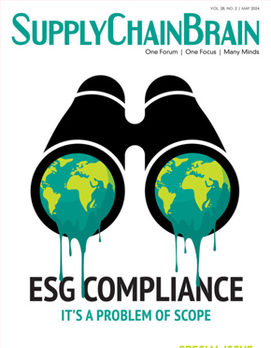
The supplier-buyer relationship is dynamic and in a constant state of change. We have seen first-hand how successful suppliers position themselves to capitalize on the partnership.
Buyers typically impose business rules on their supply chains in an effort to manage efficiencies in the replenishment of goods. Given that each buyer operates independently, the orchestrated process of ordering, shipping, tracking, and paying for goods is unique to each organization. It’s not uncommon to find suppliers having to manage thousands of unique business rules to satisfy the demands of customers.
Adhering to these business rules is critical to a collaborative relationship. Failure to comply, on the other hand, can result in financial penalties, also known as chargebacks, and the potential loss of business.
Below are three recommendations to suppliers to enhance this collaborative relationship:
Research and Consolidate Ownership of Custom Business Rules for Each Customer
Electronic collaboration for many suppliers is new. As a result, the undertaking of supporting business rules can be overwhelming. In many cases, suppliers tend to underestimate the importance of adherence. As a result, it is common to find suppliers who are unaware of their compliance status. Many incur chargebacks that impair profitability and opportunities for increased business with customers.
Adhering to customer-imposed business rules often involves process change, technical integration and management oversight. It covers the following elements:
- Technical integration defines collaborative transactions to be exchanged between parties. Business rules define the number, content and flow of these transactions, as well as the timing associated with sending and receiving them. Specific rules often identify which data is mandatory, and what kind of content can be provided in certain fields.
- Process compliance typically imposes rules upon the supplier relative to how goods are packaged, labeled, and shipped. It might define rules on fulfillment if an entire order cannot be satisfied, as well as the rules associated with where to ship goods.
- Measuring and monitoring: Failure to follow a given business rule often incurs a fine, imposed under various labels such as chargeback, quality deduction or non-compliance fee. Fines can be either fixed fees or a percentage of the value associated with the goods in question.
Buying organizations will often develop a scorecard in which suppliers are evaluated. Suppliers who proactively manage, monitor and self-evaluate their adherence to business rules often position themselves to win more business and improve their own margins.
Design Flexible Processes and Systems to Accommodate Customer Needs
Suppliers must implement processes and systems to prevent supply-chain rule violations. For example, a buying organization might require a supplier to choose specific shipping vendors depending on the weight of a given shipment. If a supplier doesn’t have the systems in place to accurately track the weight of each shipment, the wrong shipping vendor could mistakenly be selected. Because the buyer might be incurring the cost of the shipment, a mistake can lead to cost incurrences that ultimately jeopardize the business relationship.
This underscores the need for suppliers to deploy systems that can be configured to a buyer’s unique specifications. In the above case, the solution should be designed to cross-check SKUs of products on the pallets with their weights, to easily identify a pallet with an incorrect weight for the shipping vendor to which it was assigned. Should the pallet be assigned to the wrong transportation vendor, an alert could be sent to an authorized person to correct the shipment before contacting the transportation vendor. By doing this, the supplier can avoid any potential errors in shipper selection, and keep the buying organization free of unnecessary expense.
Seek Out Insight Into Trends Associated With Key Performance Indicators
Proactive monitoring and management allow a supplier to measure how it has adhered to a given buying organization’s business rules.
Buying organizations conduct reviews of their supplier communities each year, to decide who gets rewarded and punished relative to future business. Without a proactive exception management process, a sales representative for the supplier might enter this review process with little to no information to support its side of the negotiation. The buying organization could give out a performance rating, be it positive or negative, and the supplier would have no means by which to defend or refute it. However, with a proactive management system in place, the sales rep can easily produce a report showing actions the supplier is taking for each exception. Simply having data and an action plan in place often will convey to the customer a level of buy-in to the process.
As supply chains become leaner and more dynamic, the requirements for collaboration will increase. The need for data, status, integration, process and compliance will become a prerequisite for suppliers seeking customers, regardless of whether a supplier is satisfying an order for a business or consumer.
With the growth of online shopping, the complexity imposed on suppliers has increased dramatically. Business rules coming from a given retailer might vary depending on whether it’s selling products in a traditional store or through the retailer’s website. As a supplier’s business matures and more customers are added, the number and complexity of business rules grow, and managing them becomes more difficult.
By implementing a system that not only recognizes changing demands but also acts to meet them, suppliers and buyers can engage in a relationship that’s more profitable for everyone involved in today’s ever-changing supply chain model.
Steve Scala is executive vice president of corporate development for DiCentral, a global provider of B2Bi managed services.




.jpg?height=100&t=1715228265&width=150)


